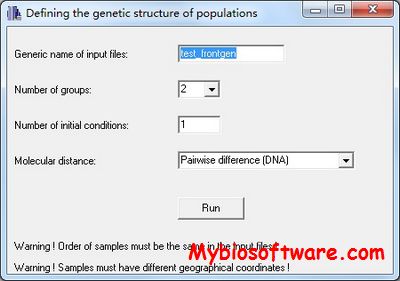SIMCOAL 2.1.2
:: DESCRIPTION
SIMCOAL (SIMulate COAlescence) is a computer program for the simulation of molecular genetic diversity in an arbitrary number of haploid populations examined for a set of fully linked loci.
::DEVELOPER
Computational and Molecular Population Genetics Lab, University of Bern
:: SCREENSHOTS
N/A
:: REQUIREMENTS
- Windows / Linux
:: DOWNLOAD
:: MORE INFORMATION
Citation
Excoffier, Novembre, Schneider (2000),
“SIMCOAL: a general coalescent program for the simulation of molecular data in interconnected populations with arbitrary demography“,
Journal of Heredity, 91:506-509.


